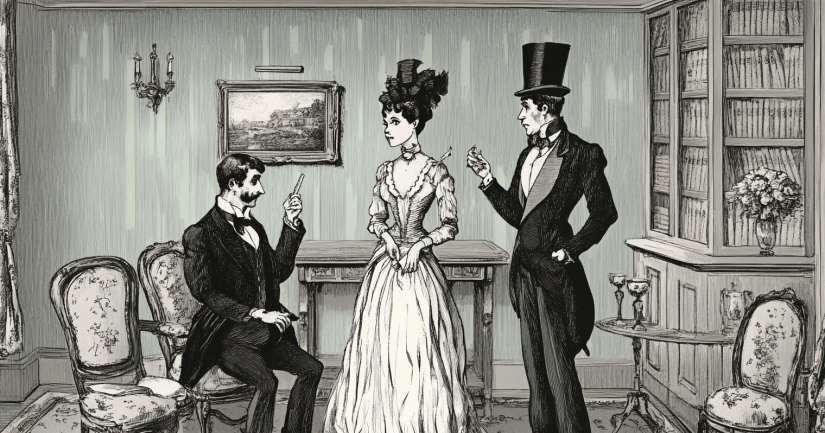
Lace up your boots, polish your wit, and prepare to enter Oscar Wilde’s world of high society and higher wordplay this The Importance Of Being Earnest Vocabulary Quiz is your invitation to master the refined, satirical, and delightfully dramatic language of Wilde’s iconic play. From epigrams to euphemisms, this quiz tests your understanding of the rich vocabulary that defines the dialogue, characters, and humor in The Importance of Being Earnest. It’s a celebration of language as both a weapon and a disguise, just as Wilde intended.
Wilde didn’t write casually every word he chose carried bite, beauty, and often double meaning. This quiz examines not only the definitions of words used in the play but also how those words create tone, elevate wit, and subvert social norms. Whether you’re preparing for an exam, deepening your appreciation of the text, or simply enjoying Wilde’s linguistic gymnastics, this quiz reveals how much you truly understand the vocabulary that makes this play a comedic masterpiece.
Wilde’s language is as sharp as his wit—how well do you know it? Test your broader knowledge of the play with the The Importance Of Being Earnest True Or False Quiz. If you enjoy identifying key lines, try the The Importance Of Being Earnest Quote Identification Quiz. And for the ultimate challenge, take on the The Importance Of Being Earnest Full Book Quiz.
Face the The Importance Of Being Earnest Vocabulary Quiz Challenge
Why The Importance Of Being Earnest Vocabulary Quiz Sharpens More Than Just Definitions
This quiz goes beyond memorization. It challenges you to recognize how Wilde uses language for social satire, dramatic irony, and character development. Every term, phrase, or idiom in this play does double duty—carrying literal meaning while hinting at hidden motives or criticizing class conventions. By engaging with this quiz, you’ll sharpen your grasp of:
- 19th-century British English and Victorian expressions
- Satirical devices and literary wordplay
- Context-based meaning and tonal shifts
- Subtext hidden within seemingly simple lines
Vocabulary isn’t just about understanding it’s about interpretation, nuance, and literary precision.
What You’ll Be Tested On in the Quiz
You’ll face questions across a range of vocabulary types:
- Archaic words, such as “neologism,” “perambulator,” and “fortnight”
- Satirical terms, like “Bunburyist,” coined by Wilde himself
- Upper-class idioms, which hint at Victorian norms, etiquette, and class anxiety
- Foreign phrases, such as “gravely immoral” or “vulgar ostentation,” dripping with irony
- Figurative language, including metaphor, inversion, and Wilde’s famous paradoxes
Each question includes context clues to help you apply the term in the way Wilde intended through elegance and absurdity, side by side.
What This Quiz Helps You Discover
This quiz is more than a vocabulary builder. It teaches you how words function within Wilde’s literary structure. You’ll develop a better feel for:
- How characters reveal themselves through their speech
- Why the language of Earnest remains quotable and sharp over a century later
- How irony, formality, and playfulness collide in Wilde’s phrases
- What makes Wilde’s dialogue so unique among playwrights of his era
Every correct answer deepens your understanding of the linguistic charm behind the comedy.
Fun Facts About Wilde’s Language and Wordplay
- Wilde invented the word Bunburying to describe escaping social obligations via fictional personas
- The play’s use of paradox was so sharp that critics called Wilde “a philosopher in disguise”
- “Earnest” functions as both a name and a quality, making the entire plot a pun
- Many of Wilde’s epigrams are single-sentence vocabulary puzzles sharp, clever, and endlessly quotable
- “Cecily” and “Gwendolen” use florid, ornamental vocabulary to hide fierce emotional instincts
- The term “invalid” is used to comedic effect, masking Algernon’s laziness in a dignified tone
- Wilde’s audience was expected to understand subtle references to fashion, politics, and theology—all with humor
Who Should Take This Quiz
This quiz is ideal for:
- Literature students studying The Importance of Being Earnest
- Language lovers who enjoy clever vocabulary and stylistic precision
- Teachers creating lesson plans around Wilde’s use of diction
- Theatre fans interested in the rhythm and style of period dialogue
- Anyone preparing for academic tests or exploring advanced English through literature
Even casual fans will appreciate the surprising richness of Wilde’s vocabulary once they see it broken down in action.
Build a Wildean Vocabulary, One Word at a Time
Wilde once said, “To lose one’s vocabulary quiz may be regarded as a misfortune; to fail it twice looks like carelessness.” This Importance Of Being Earnest Vocabulary Quiz gives you the chance to explore, enjoy, and master the dazzling language that makes the play unforgettable.
Take the quiz now and discover just how fluent you are in Wilde’s world of irony, intelligence, and irresistible wordplay.
The Importance of Being Earnest Quizzes – Are you as witty as Wilde?
